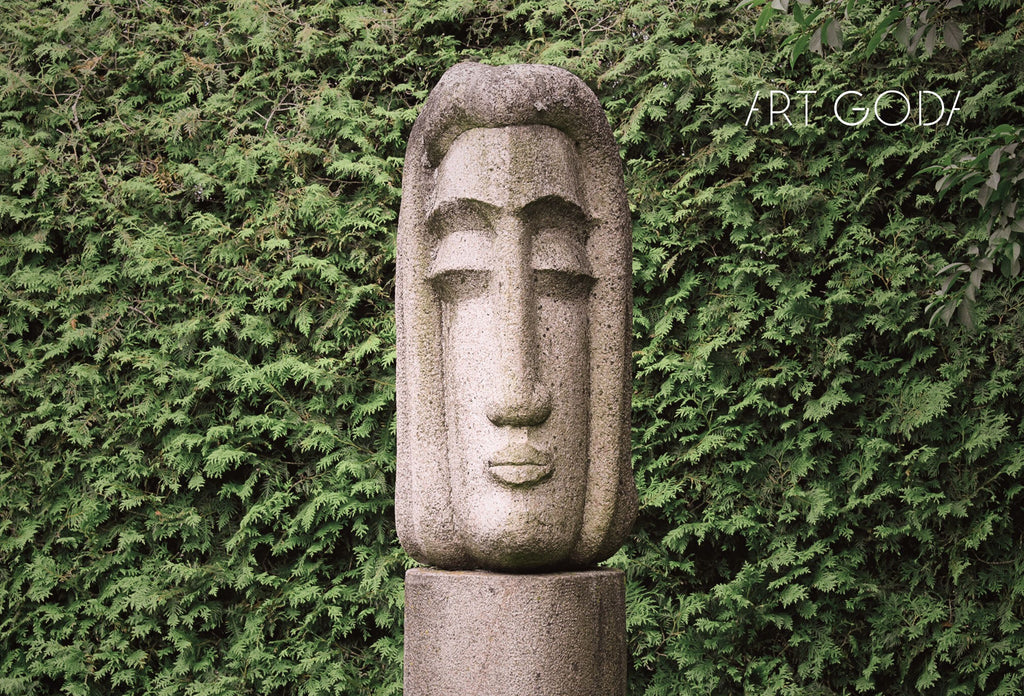Sculpture, with its tangible and enduring presence, has been a captivating form of artistic expression throughout the ages. The allure of sculpture lies in its ability to transcend the two-dimensional constraints, inviting viewers to explore the world of three-dimensional artistry.
In this exploration of the diverse landscape of sculpture, we delve into the captivating realms of figurative, abstract, and conceptual sculptures, unveiling the techniques that breathe life into these remarkable creations.
The Enduring Presence of Sculpture
Sculpture's enduring presence in the art world speaks to its timeless appeal. From ancient civilizations to contemporary expressions, sculptures stand as testaments to human creativity, culture, and the desire to immortalize the beauty of form.
The Power of Three Dimensions
Unlike flat canvases, sculpture harnesses the power of three dimensions, allowing artists to shape space and form in ways that engage and provoke thought. The physicality of sculptures invites viewers to wonder, explore, and interact with the art on a three dimensional level.
Sculpture as a Medium for Expression
Beyond its physicality, sculpture serves as a powerful medium for expression. Artists mold raw materials into evocative forms that convey narratives, emotions, and perspectives. Whether capturing the essence of the human form or pushing the boundaries of abstraction, sculpture transcends the limits of language.

"Naive", bronze sculpture by Aurelija Simkute.
Exploring the Diverse Landscape of Sculpture
Figurative Sculpture: Capturing the Human Form
Figurative sculpture immortalizes the human experience. From classical forms to contemporary explorations, figurative sculptures encapsulate the beauty, strength, and vulnerability of the human form.
Abstract Sculpture: Embracing Non-Representation
In the realm of abstraction, artists sculpt forms that transcend literal representation. Abstract sculpture challenges viewers to perceive and interpret, inviting personal and subjective engagements with the artwork.
Conceptual Sculpture: Challenging Perceptions
Conceptual sculpture takes expression to intellectual heights, challenging preconceived notions and inviting viewers to contemplate the underlying ideas and concepts. It is a realm where materiality meets thought-provoking abstraction.
Unveiling the Techniques Behind Sculpture
Carving: Shaping Form from Stone
The traditional art of carving involves chiseling away excess material to reveal the desired form within stone. From the classical sculptures of ancient Greece to contemporary creations, carving has been a foundational technique in sculpture.
Casting: Capturing Details In Bronze
Casting allows artists to replicate intricate details by creating molds and casting materials such as bronze. This technique has been pivotal in crafting sculptures with intricate textures and lifelike details.
Assemblage: Combining Found Objects into New Forms
Assemblage art involves the artful arrangement of found objects into cohesive sculptures. Artists repurpose and combine disparate materials, creating novel forms that challenge conventional perceptions.
Appreciating Sculpture in the Context of Art History
Ancient Sculpture: Laying the Foundation
Ancient civilizations laid the foundation for sculpture, creating iconic works that embodied cultural, religious, and mythological narratives. From the monumental statues of Egypt to the serene sculptures of ancient China, each piece tells a story of its time.
Renaissance Sculpture: Rebirth and Humanism
The Renaissance witnessed a rebirth of interest in classical ideals, leading to a resurgence in sculptural art. Humanism fueled the creation of lifelike sculptures that celebrated the beauty and complexity of the human form.
Modern Sculpture: Breaking Traditions and Embracing New Forms
In the modern era, sculptors broke free from classical constraints, embracing abstraction, minimalism, and avant-garde forms. Modern sculpture reflects the dynamic shifts in societal norms, technology, and artistic philosophies.
Collecting Sculpture: A Guide for Sophisticated Art Enthusiasts
Identifying Your Taste and Preferences
Embark on your collecting journey by identifying the styles, themes, and artists that resonate with your personal taste and aesthetic preferences.
Evaluating Sculpture for Authenticity and Quality
Understand the markers of authenticity and quality, ensuring that each piece in your collection meets the standards of craftsmanship and artistic integrity.
Caring For Your Sculpture Collection
Preserve the beauty and longevity of your sculpture collection by implementing proper care and conservation practices. From environmental considerations to restoration, nurturing your collection ensures its enduring value.
Conclusion: Embracing the Beauty and Significance of Sculpture
Sculpture as a Gateway to Understanding Human Expression
Sculpture stands as a gateway to understanding the depth and diversity of human expression. It encapsulates the human experience, from the tangible forms of the ancients to the conceptual explorations of the contemporary.
The Enduring Value of Sculpture as an Art Form
As we navigate through the rich history and techniques of sculpture, its enduring value becomes apparent. Sculpture transcends time, inviting us to appreciate the past, engage with the present, and anticipate the artistic evolutions of the future.
Inviting Sculpture into Your Collection and Home
For art enthusiasts and collectors, inviting sculpture into your collection and home is an invitation to experience beauty, emotion, and intellectual inquiry on a profound level. Each sculpture tells a story, and as a collector, you become the custodian of these narratives, ensuring their continued resonance in the tapestry of art history.
Embrace the beauty and significance of sculpture, for it is a form of art that endures, inspires, and transforms.
- - -
Are you a fan of sculpture art? Take a look at sculptures available for sale at our gallery and don’t forget to SUBSCRIBE for inspiring artsy newsletters!


